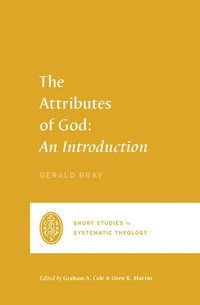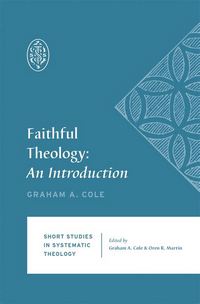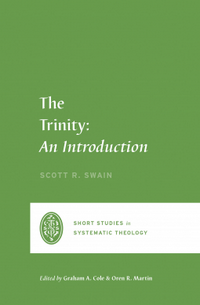 |
The Attributes of God: An Introductionby Gerald Bray Paperback, 109 pg. Read: July 11, 2021 |

What’s The Attributes of God About?
While there are technically four chapters in this book, it’s really two–the first chapter introduces the concept of God’s attributes, where we got the idea, and so on. The last chapter endeavors to sketch out how these attributes are relevant to believers, why we should study and care about them.
The bulk of the book resides in the other two chapters–one what Bray calls God’s Essential Attributes, the second on what he calls His Relational Attributes. Typically, these are referred to as his incommunicable (omnipresence, omnipotence, omniscience) and communicable attributes (holiness, righteousness, goodness), respectively, but Bray has his reasons for changing the names and explains it (I’m not saying I’m dropping the usual labels myself, but I can appreciate his thinking).
Bray describes each attribute, what the Biblical justification is for ascribing it to God and relates it to the others. He even touches (it’s only an introduction, so he doesn’t get too far) on some of the historic discussions about the attribute.
So, what did I think about The Attributes of God?
There was a voice in the back of my head early on wondering if we needed this volume. Recent years have given us Mark Jone’s God Is…, Matthew Barret’s None Greater and Terry Johnson’s The Identity and Attributes of God, and a few others. Is there a place for Bray’s slim volume?
Of course—1. this series needs to address the topic and 2. contemporary Evangelicals have really dropped the ball on reflecting and applying that reflection on their theology and lives. We need more writing and thinking on these things which ought to characterize our thoughts not less.
Bray does a good job in introducing the notion here. Of the three I’ve read in this series, it’s the least accessible. But I’d argue that it’s still on the level with the others, you just might have to take your time with the occasional passage. These are deep waters that Bray is introducing the reader to, things that the Church has spent centuries establishing, and we need to at least see the immensity of the topic before we can say we are starting to understand it. It’s a short book and he has a lot to cover, so every word counts.
Another solid entry in this series. I’m appreciating the varied approaches and styles that the authors address their topics, while sharing similar concerns for theological method. I’m really glad that Crossway gave the green light to the Short Studies in Systematic Theology and hope it’s discovered by many. The Attributes of God: An Introduction is as good a place as any to dive in and see what it’s about.

This post contains an affiliate link. If you purchase from it, I will get a small commission at no additional cost to you. As always, opinions are my own.
![]()





